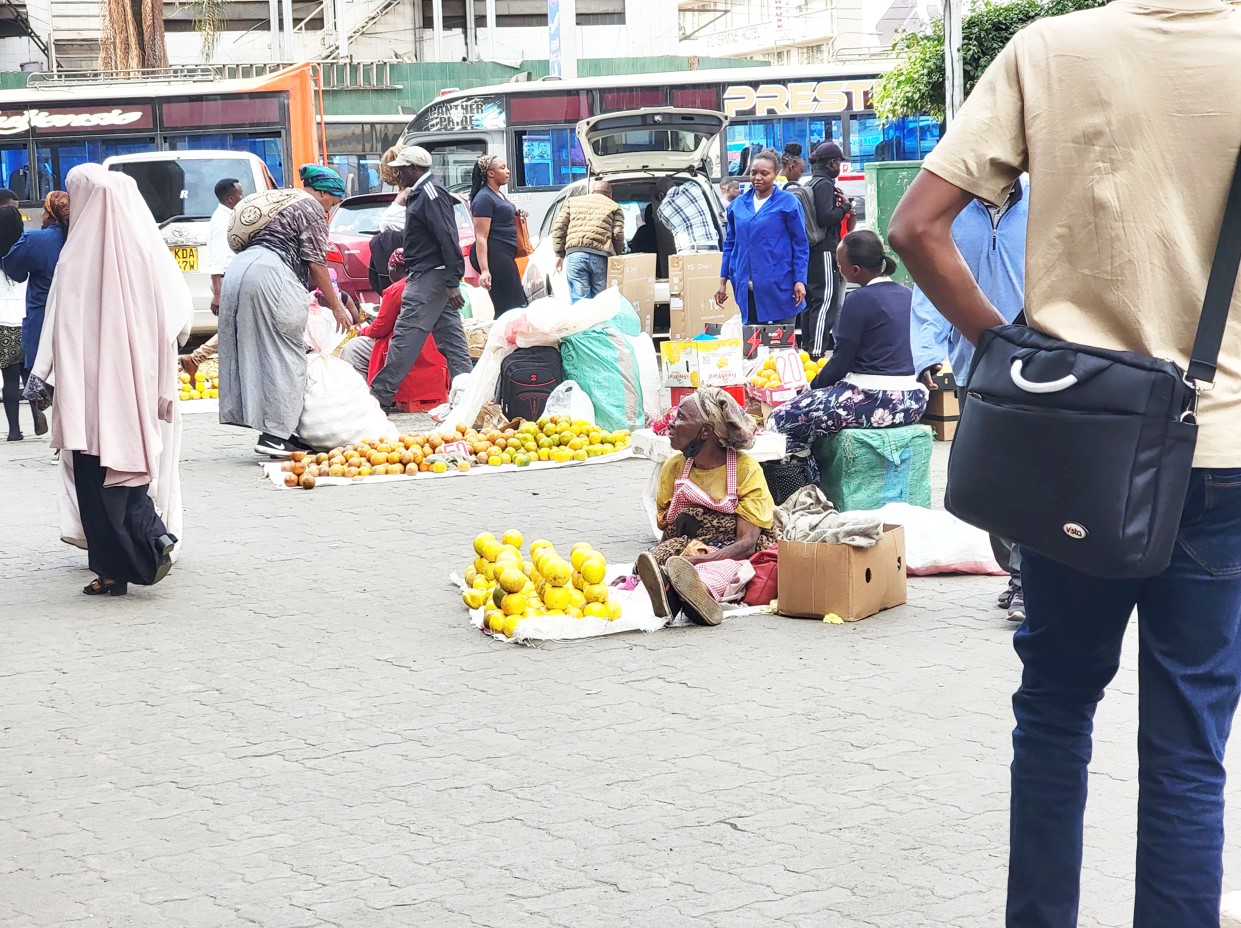Nairobi MCAs clear path for hawkers in new pop-up market initiative

This is not the first time a Nairobi governor has attempted to organise the city's street traders.
In a move aimed at decongesting Nairobi's central business district (CBD), members of the city’s county assembly (MCAs) have passed a motion directing the Nairobi County government to relocate street traders to designated backstreets and regulated pop-up markets.
This measure, which also mandates enhanced security and a streamlined licensing process, seeks to address the mounting pressure hawkers place on the city's thoroughfares while ensuring safer, regulated spaces for trade.
More To Read
- Should Nairobi be a county? The capital city's management crisis that refuses to go away
- Motion filed to force Nairobi contractors to repair damaged roads
- Nairobi gives property owners 14 days to repaint, clean up their buildings
- How Nairobi’s women hawkers risk it all to make ends meet
- Mwongela Kioko: A Nairobi street child’s audacity to beat the odds
- Insecurity hits Nairobi CBD as gangs mug, drug and rob residents in broad daylight
The motion, moved by Umoja 1 MCA Mark Mugambi (Minority Whip), tasks the county executive under Governor Johnson Sakaja to allocate designated market zones and register hawkers.
This motion builds on the Nairobi City County Pop-Up Markets and Street Vending Act of 2019, a law created to regulate hawkers in Nairobi but has yet to be fully implemented.
According to Mugambi, unregulated street vending has become a major hurdle to city mobility, adding that enforcement officers regularly exploit traders by collecting bribes and harassing them.
"As a capital city, for a long time, we have failed to ensure that the vendors are regulated. We want to ensure that they operate within a regulated environment and that there can be mobility within our city," he said on Tuesday.
Under the 2019 Act, all street vendors must secure a license from the county government. The law also calls for a database of vendors, tracking their locations, contact information, and types of goods sold.
Furthermore, the county executive is required to clearly designate zones as unrestricted, restricted, or prohibited for vending.
The list of approved areas must be published in at least two national newspapers. Violating these regulations could lead to a fine of up to Sh30,000 or six months' imprisonment.
Nairobi, which was once known as the "Green city in the sun", has seen its streets overrun by hawkers over recent decades.
Informal traders now occupy almost every corner, with some 40,000 street vendors across the city and around 5,000 operating within the CBD daily.
The city's street congestion and litter problems have intensified, and local businesses complain that hawkers obstruct their entrances and reduce foot traffic for legitimate stores.
In his early days in office, Governor Sakaja pledged not to evict hawkers outright but to organise designated spaces for their operations.
In his manifesto, he outlined a plan allowing hawkers to operate within the CBD from 5 pm to 10 pm.
Maintain cleanliness
The county boss also made it clear that hawkers would be expected to keep their areas clean and follow strict guidelines for pedestrian accessibility.
"Under my leadership, hawkers operating in the CBD will be allowed from exactly 5 pm to 10 pm," Sakaja said in a previous statement.
Each stall was to be restricted to a 3-by-3-foot space, with designated clear pathways for pedestrian traffic.
Despite these efforts, the city's hawker problem persists. Governor Sakaja's attempts to move hawkers to designated backstreets in 2023 faced pushback from traders who cited poor conditions in these areas.
In response to these criticisms, the county set aside Sh100 million to improve trading conditions in the designated backstreet locations, including shade structures and other necessary upgrades.
Past efforts
This is not the first time a Nairobi governor has attempted to organise the city's street traders.
Former governor Evans Kidero attributed the hawker issue to powerful cartels within City Hall, who allegedly influenced decisions to maintain the hawkers' presence on city streets.
His successor, Mike Sonko, also promised to regulate the hawkers within his first 100 days in office, aiming to create a register of all small-scale vendors, but this plan quickly crumbled.
Even the defunct Nairobi Metropolitan Services (NMS), under General Mohammed Badi, attempted to address the hawker challenge by establishing a market near Utalii College along Thika Road, but the project stalled before completion.
In 2019, former nominated MCA Kabiro Mbugua introduced the Nairobi City County Pop-Up Markets and Street Vendors Act.
Passed into law in 2021, this Act aimed to regulate hawker operations and organize pop-up markets throughout the city.
The law requires that hawkers comply with market regulations under a specialised Pop-Up Markets Department, established within the executive arm of City Hall.
This department is tasked with establishing market rules, ensuring market cleanliness, and managing revenue collection.
The law also states that hawkers holding valid licenses cannot be evicted from designated spots without a 30-day notice and that violators can face a fine of up to Sh30,000 or six months in jail.
Efforts to enforce these regulations have often met resistance, as hawkers return to the streets almost as soon as they are relocated.
This reality underscores the deep-rooted nature of the street vending economy in Nairobi.
With the newly passed motion, Nairobi County MCAs hope to address the longstanding issues of street vending by integrating hawkers into the urban economy without sacrificing public space or business order.
However, as past efforts have shown, striking a balance between regulation and the informal economy will require continuous negotiation and improvement in the spaces provided.
Top Stories Today















































